Phyllis A. Balch, CNC
See book keywords and concepts |
 B-complex vitamins and vitamin k.
When you take antibiotics, the "friendly" bacteria in your digestive tract are destroyed along with the harmful bacteria. Supplementing your diet with B. bifidum helps you maintain healthy intestinal flora. Unhealthy flora can result in the liberation of abnormally high levels of ammonia as protein-containing foods are digested. This irritates the intestinal membranes. In addition, the ammonia is absorbed into the bloodstream and must be detoxified by the liver, or it will cause nausea, a decrease in appetite, vomiting, and other toxic reactions. B-complex vitamins and vitamin k.
When you take antibiotics, the "friendly" bacteria in your digestive tract are destroyed along with the harmful bacteria. Supplementing your diet with B. bifidum helps you maintain healthy intestinal flora. Unhealthy flora can result in the liberation of abnormally high levels of ammonia as protein-containing foods are digested. This irritates the intestinal membranes. In addition, the ammonia is absorbed into the bloodstream and must be detoxified by the liver, or it will cause nausea, a decrease in appetite, vomiting, and other toxic reactions. |
Abram Hoffer, PhD, MD, FRCP(C) and Dr. Jonathan Prousjy, DPHE, DSC, ND, FRSH
See book keywords and concepts |
 Vitamin K. This is needed to make osteocalcin, found primarily in bone, that pulls calcium into the bone. The dose ranges from 5 to 10 mg daily.
4. Vitamin D-3. Very safe and the optimal dosage is equal to or greater than 1000 IU.
5. Magnesium. The optimum dosage is 250 to 750 mg daily.
6. Manganese. The optimum dosage is 15 to 50 mg daily.
7. Folic acid. Menopause is associated with folic acid deficiency. The optimum dosage is 5 to 15 mg daily. In Canada, a prescription is required.
8. Boron. The optimum dosage is 3 to 6 mg daily.
9. Strontium.
10. Silicon.
11. Vitamin B-6. Vitamin K. This is needed to make osteocalcin, found primarily in bone, that pulls calcium into the bone. The dose ranges from 5 to 10 mg daily.
4. Vitamin D-3. Very safe and the optimal dosage is equal to or greater than 1000 IU.
5. Magnesium. The optimum dosage is 250 to 750 mg daily.
6. Manganese. The optimum dosage is 15 to 50 mg daily.
7. Folic acid. Menopause is associated with folic acid deficiency. The optimum dosage is 5 to 15 mg daily. In Canada, a prescription is required.
8. Boron. The optimum dosage is 3 to 6 mg daily.
9. Strontium.
10. Silicon.
11. Vitamin B-6. |
Gary Null
See book keywords and concepts |
| Additional suggestions: Take N-acetyl-cysteine at 1,000 mg; acetyl-L-carnitine at 1,000 mg; vitamin k at 10 mg; magnesium at 1,500 mg; IP6, to increase natural killer cells; and MGM3, as directed. Take pantothenic acid and zinc for adrenal support, and eat sea vegetables twice a day. Use breathing exercises, colon cleansing, Amma therapy, air purifiers, water purifiers, and castor oil packs applied to the back and chest areas to enhance breathing. The best results come when the full elimination program is followed, together with the foregoing protocol.
Eye Disorders. |
James Braly M.D. and Ron Hoggan M.A.
See book keywords and concepts |
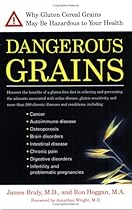 At one time, vitamin k, an essential vitamin derived from food and the action of intestinal bacteria, was thought to be involved solely with the clotting of blood. As it turns out, vitamin k is needed in other key processes, including the production of osteocalcin by osteoblasts. Osteocalcin is a bone protein important in bone metabolism and bone formation. When excessive levels are found in the blood, it is associated with bone disorders such as Paget's disease and postmenopausal osteoporosis. At one time, vitamin k, an essential vitamin derived from food and the action of intestinal bacteria, was thought to be involved solely with the clotting of blood. As it turns out, vitamin k is needed in other key processes, including the production of osteocalcin by osteoblasts. Osteocalcin is a bone protein important in bone metabolism and bone formation. When excessive levels are found in the blood, it is associated with bone disorders such as Paget's disease and postmenopausal osteoporosis. |
Patrick Holford
See book keywords and concepts |
 Vitamins D and K
These are not commonly deficient. vitamin k is made by bacteria in the gut, while vitamin D can be made in the skin on exposure to sunlight. Vitamin D is also found in milk, meat, and eggs. Deficiency is likely only in dark-skinned vegans who have little exposure to the sun.
The decline of fruit and vegetables
The sad truth is that food today is not what it used to be. Fruit and vegetables are only as good as the soil in which they are grown. Minerals pass from the soil to the plant and in turn help the plant grow and produce vitamins. Vitamins D and K
These are not commonly deficient. vitamin k is made by bacteria in the gut, while vitamin D can be made in the skin on exposure to sunlight. Vitamin D is also found in milk, meat, and eggs. Deficiency is likely only in dark-skinned vegans who have little exposure to the sun.
The decline of fruit and vegetables
The sad truth is that food today is not what it used to be. Fruit and vegetables are only as good as the soil in which they are grown. Minerals pass from the soil to the plant and in turn help the plant grow and produce vitamins. |
Healing Children's Attention & Behavior DisordersDr. Abram Hoffer, M.D., FRCP(C)
See book keywords and concepts |
| A 375 meg, vitamin B-12 10 meg, vitamin C 500 mg, vitamin D 3 meg, vitamin E 70 iu, vitamin k 100 meg, calcium gluconate 100 mg, chromium 200 meg, magnesium 7.6 mg, manganese 1.5 mg, molybdenum 100 meg, iodine 50 meg, iron 1.4 mg, and zinc 10 mg. Thirty children were given placebos. And a final thirty were given nothing. After eight months all the three groups had the same verbal intelligence scores. Non-verbal intelligence increased significantly only in the group given supplements. |
The Life Extension Editorial Staff
See book keywords and concepts |
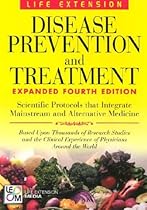 IS&3&UU&m vitamin k is contraindicated in people taking anticoagulant drugs, such as Coumadin or Heparin.
Relieving Symptoms of Depression or Stress
Depression. S-adenosylmethionine (SAMe) is a natural substance that has demonstrated significant anti-depressive effects. Found in all our cells, it plays an important role in critical biochemical processes. SAMe serves as a precursor for glutathione, coenzyme A, cysteine, taurine, and other essential compounds and is needed for the production of serotonin and other neurotransmitters. IS&3&UU&m vitamin k is contraindicated in people taking anticoagulant drugs, such as Coumadin or Heparin.
Relieving Symptoms of Depression or Stress
Depression. S-adenosylmethionine (SAMe) is a natural substance that has demonstrated significant anti-depressive effects. Found in all our cells, it plays an important role in critical biochemical processes. SAMe serves as a precursor for glutathione, coenzyme A, cysteine, taurine, and other essential compounds and is needed for the production of serotonin and other neurotransmitters. |
Gary Null
See book keywords and concepts |
| Vitamin B6 is a very important, generally underutilized nutrient; take about 25 to 50 mg a day. Use vitamin k at 5 mg, and cat's claw. Also useful are warm sitz baths, homeopathy, and acupuncture. Exercise, especially good resistance workouts about four days a week, can help. There is also a psychological component to this that we should pay attention to: Try not to be "anal" (in the colloquial sense of "retentive"). Let yourself flow.
Hypoglycemia. Hypoglycemia, unrecognized and undiagnosed in most people with the condition, can lead to diabetes and obesity. |
| Also, make sure you have 10 mg of vitamin k and 50 mg of fiber in your diet daily. With a good vegetarian diet, you will.
Vitamin C is crucial to the health of the bones. Herbs that are valuable sources of calcium and vitamin C are nettle, dandelion, and horsetail. Also, alpha-lipoic acid at 300 to 400 mg and N-acetyl-cysteine are valuable because they contribute greatly to building a strong immune system.
To balance our hormones, DHEA, at about 25 mg, is crucial because this master hormone diminishes in the later years of life. |
Ralph W. Moss, Ph.D.
See book keywords and concepts |
 Drugs that can influence such clotting could be important in controlling metastatic growth. vitamin k is one such factor responsible for activating coagulation. This activity is in turn depressed by treatment with warfarin. So scientists began thinking about stopping vitamin k from helping the blood coagulate (5).
In the 1970s there were four clinical trials of anticoagulants. Drugs that can influence such clotting could be important in controlling metastatic growth. vitamin k is one such factor responsible for activating coagulation. This activity is in turn depressed by treatment with warfarin. So scientists began thinking about stopping vitamin k from helping the blood coagulate (5).
In the 1970s there were four clinical trials of anticoagulants. |
| Some natural sources of vitamin k are alfalfa, green leafy vegetables and kelp. Other sources are milk, egg yolks, molasses, safflower and other polyunsaturated oils. Some reports say that eating yogurt helps the body manufacture vitamin k.
Bioflavonoids (Vitamin P): Apricots, blackberries, black currants, buckwheat, grapefruit, grapes, lemons, plums and rose hips.
Vitamin Supplements:
For most people it is impractical to get all their vitamins from food. Cancer patients may have very high requirements for nutrients, because of the cancer as well as the effects of therapy. |
Ray Strand, M.D.
See book keywords and concepts |
 Foods that interfere with Coumadin include foods rich in vitamin k, such as asparagus, bacon, beef liver, cabbage, fish, cauliflower, and green, leafy vegetables.
Herbal medicines to avoid while taking Coumadin are angelica root, anise, borage-seed oil, devil's claw, papain, ginseng, ginger, ginkgo, horse chestnut, alfalfa, red clover, clove oil, feverfew, passionflower herb, salvia root (danshen), willow bark, cinchona bark, turmeric, garlic, coquinone, and dong quai.
Occasionally patients on Coumadin suffer a serious adverse drug reaction, possibly even a life-threatening bleed. Foods that interfere with Coumadin include foods rich in vitamin k, such as asparagus, bacon, beef liver, cabbage, fish, cauliflower, and green, leafy vegetables.
Herbal medicines to avoid while taking Coumadin are angelica root, anise, borage-seed oil, devil's claw, papain, ginseng, ginger, ginkgo, horse chestnut, alfalfa, red clover, clove oil, feverfew, passionflower herb, salvia root (danshen), willow bark, cinchona bark, turmeric, garlic, coquinone, and dong quai.
Occasionally patients on Coumadin suffer a serious adverse drug reaction, possibly even a life-threatening bleed. |
Joe Graedon and Teresa Graedon
See book keywords and concepts |
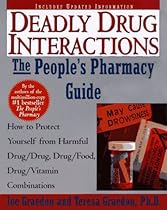 All of the vegetables in the entire cabbage family, as well as asparagus, lettuce, and the already-mentioned liver, are high in vitamin K; these foods should be eaten only in modest quantities by anyone on
Coumadin. Periodic blood tests (prothrombin times) are also a good idea.
Although it is not usually thought of as rich in vitamin k, large quantities of avocado can also reduce the effectiveness of Coumadin.25 As with vitamin-K-rich foods, overindulging could be a mistake with serious consequences. All of the vegetables in the entire cabbage family, as well as asparagus, lettuce, and the already-mentioned liver, are high in vitamin K; these foods should be eaten only in modest quantities by anyone on
Coumadin. Periodic blood tests (prothrombin times) are also a good idea.
Although it is not usually thought of as rich in vitamin k, large quantities of avocado can also reduce the effectiveness of Coumadin.25 As with vitamin-K-rich foods, overindulging could be a mistake with serious consequences. |
Gary Null
See book keywords and concepts |
| One recent study shows that interleukin-6 alone increases the risk of heart attack, even after adjustment for the elevation in C-reactive protein induced by interleukin-6 itself. Both vitamin k and DHEA suppress interleukin-6, which helps explain why these supplements have been shown to protect against such a wide range of age-related diseases. Nettle leaf extract appears to be the most effective dietary supplement for suppressing the dangerous tumor necrosis factor alpha and interleukin-lb cytokines. |
Gary Null
See book keywords and concepts |
 In fact, any medication—such as antibiotics and sulfa drugs—that influence your normal intestinal environment can also influence how much vitamin k your body is able to manufacture.
Because they lead to malabsorption of nutrients, ulcerative colitis and diarrhea also interfere with vitamin k synthesis. After a bout with either, it may be a good idea to eat yogurt regularly for a while, encouraging the growth and redistribution of the K-producing microflora. In fact, any medication—such as antibiotics and sulfa drugs—that influence your normal intestinal environment can also influence how much vitamin k your body is able to manufacture.
Because they lead to malabsorption of nutrients, ulcerative colitis and diarrhea also interfere with vitamin k synthesis. After a bout with either, it may be a good idea to eat yogurt regularly for a while, encouraging the growth and redistribution of the K-producing microflora. |
Gary Null, Ph.D.
See book keywords and concepts |
 It consists of three related substances: phylloqui-none (Kl), found in foods; menaquinone (K2), produced in the intestinal bacteria; and menadione (K3), a synthetic compound of the first two. vitamin k is found in green leafy vegetables such as alfalfa, broccoli, and spinach; in polyunsaturated oils; and in animal products like eggs, fish oils, milk, yogurt, and liver. vitamin k is most noted for its central role in proper blood clotting. Studies have shown it also capable of inhibiting tumor growth and may be important for the prevention of osteoporosis, and tooth decay. It consists of three related substances: phylloqui-none (Kl), found in foods; menaquinone (K2), produced in the intestinal bacteria; and menadione (K3), a synthetic compound of the first two. vitamin k is found in green leafy vegetables such as alfalfa, broccoli, and spinach; in polyunsaturated oils; and in animal products like eggs, fish oils, milk, yogurt, and liver. vitamin k is most noted for its central role in proper blood clotting. Studies have shown it also capable of inhibiting tumor growth and may be important for the prevention of osteoporosis, and tooth decay. |
Michael T. Murray, N.D.
See book keywords and concepts |
 Preusch PC and Suttie J W: Lapachol inhibition of vitamin k epoxide reductase and vitamin k quinone reductase. Arch Biochem Biophys 234, 405-412,1984.
38. Rao KV: Quinone natural products: Streptonigrin (NSC-45383) and lapachol (NSC-11905) structure-activity relationships. Cancer Chemo Rep 4,11-17,1974.
39. Weed B: Second opinion: Lapacho fight against cancer. Rostrum Communication, Vancouver, Canada, 1984. Preusch PC and Suttie J W: Lapachol inhibition of vitamin k epoxide reductase and vitamin k quinone reductase. Arch Biochem Biophys 234, 405-412,1984.
38. Rao KV: Quinone natural products: Streptonigrin (NSC-45383) and lapachol (NSC-11905) structure-activity relationships. Cancer Chemo Rep 4,11-17,1974.
39. Weed B: Second opinion: Lapacho fight against cancer. Rostrum Communication, Vancouver, Canada, 1984. |
Gary Null
See book keywords and concepts |
 You can also include vitamin k in your diet by eating K-rich foods.
Pay special attention to your vitamin k needs if you are scheduled for surgery or taking any sort of medication that might interfere with your body's manufacture of K. Awareness of this little nutrient can keep your health "A-OK"!
Bioflavonoids
What Are the Bioflavonoids?
The bioflavonoids, a group of substances with many names, are water soluble and possess enough vitaminlike qualities that in some circles they are known as vitamin P. You can also include vitamin k in your diet by eating K-rich foods.
Pay special attention to your vitamin k needs if you are scheduled for surgery or taking any sort of medication that might interfere with your body's manufacture of K. Awareness of this little nutrient can keep your health "A-OK"!
Bioflavonoids
What Are the Bioflavonoids?
The bioflavonoids, a group of substances with many names, are water soluble and possess enough vitaminlike qualities that in some circles they are known as vitamin P. |
Michael T. Murray, N.D.
See book keywords and concepts |
 It has been shown, however, that some of the anthraquinones in LaPacho have vitamin k activity, and therefore use of the whole herb would compensate for lapachol's effect on vitamin k.37
The approach described above indicates a flaw in the underlying philosophy of the pharmaceutical sciences and the NCI program. Since the initial studies involved the whole plant, the detailed studies should have been undertaken with the whole plant: some of the other quinones have also been shown to have anticancer activities. It has been shown, however, that some of the anthraquinones in LaPacho have vitamin k activity, and therefore use of the whole herb would compensate for lapachol's effect on vitamin k.37
The approach described above indicates a flaw in the underlying philosophy of the pharmaceutical sciences and the NCI program. Since the initial studies involved the whole plant, the detailed studies should have been undertaken with the whole plant: some of the other quinones have also been shown to have anticancer activities. |
Heather Boon, BScPhm, PhD and Michael Smith, BPharm, MRPharmS, ND
See book keywords and concepts |
 It may be of use in situations arising from vitamin k deficiency.1
Women's Health Care
The isoflavones found in alfalfa (genistein, daidzein) have also been extracted from other plants and shown to have phytoestrogenic properties.12 Consequently, alfalfa has been suggested by many complementary practitioners to be useful in the management of menopause and menstrual discomfort.
Immune System Effects
A Chinese study suggests that polysaccharides isolated from alfalfa may have immunopo-tentiating effects.25 This has yet to be confirmed. It may be of use in situations arising from vitamin k deficiency.1
Women's Health Care
The isoflavones found in alfalfa (genistein, daidzein) have also been extracted from other plants and shown to have phytoestrogenic properties.12 Consequently, alfalfa has been suggested by many complementary practitioners to be useful in the management of menopause and menstrual discomfort.
Immune System Effects
A Chinese study suggests that polysaccharides isolated from alfalfa may have immunopo-tentiating effects.25 This has yet to be confirmed. |
Bradley J. Willcox, D. Craig Willcox, and Makoto Suzuki
See book keywords and concepts |
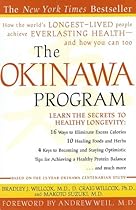 Avoid vitamin k supplements, which can increase blood clotting. Instead get K naturally through a wide range of vegetables, especially greens, broccoli, radishes, cabbages, beans, canola and soybean oils, and green tea. Anyone taking the drug Coumadin (warfarin) should strictly avoid supplementing with vitamin k because of micronutrient-drug interactions.
• Avoid extra enzymes, time-release preparations, or chelated preparations, since they add little value. They are unproven and generally ineffective.
• If you are on blood thinners (e.g. Avoid vitamin k supplements, which can increase blood clotting. Instead get K naturally through a wide range of vegetables, especially greens, broccoli, radishes, cabbages, beans, canola and soybean oils, and green tea. Anyone taking the drug Coumadin (warfarin) should strictly avoid supplementing with vitamin k because of micronutrient-drug interactions.
• Avoid extra enzymes, time-release preparations, or chelated preparations, since they add little value. They are unproven and generally ineffective.
• If you are on blood thinners (e.g. |
Mark Hyman, M.D.
See book keywords and concepts |
 Recently vitamin k deficiency was found to be as big a risk factor for heart attack as smoking!)
Problems in the pancreas also can wreak havoc on digestion. The pancreas has two functions. One is digestive, the other hormonal (to control your blood sugar by making insulin). Its digestive function is to produce enzymes that break down fats, proteins, and carbohydrates. Whenever you eat, the pancreas releases its enzymes into the intestines, where they help digest food. Recently vitamin k deficiency was found to be as big a risk factor for heart attack as smoking!)
Problems in the pancreas also can wreak havoc on digestion. The pancreas has two functions. One is digestive, the other hormonal (to control your blood sugar by making insulin). Its digestive function is to produce enzymes that break down fats, proteins, and carbohydrates. Whenever you eat, the pancreas releases its enzymes into the intestines, where they help digest food. |
| These beneficial bacteria also perform chemical transformations such as synthesizing vitamins and nutrients—for example, they manufacture vitamin k and many of the B vitamins. They also digest foods such as flaxseed and soy, and change them into molecules possessing anticancer properties.
These bacteria have an excellent symbiotic relationship with us. They thrive because we feed them, and we benefit from their helping us digest food and produce important nutrients that we absorb into our bodies.
These bacteria also serve another function: They crowd out other, nastier flora in the gut. |
Bill Gottlieb
See book keywords and concepts |
 PROBIOTICS: Boost Your Vitamin K
Lactobacillus acidophilus and Bifidobacterium bifidum are two kinds of intestinal bacteria that are thought to help manufacture vitamin k. This nutrient in turn helps your body synthesize osteocalcin, a protein that aids in building bone.
You can find supplements containing these bacteria in most health food stores, says Thomas O'Bryan, D.C., a chiropractor, nutritionist, and director of the Omnis Chiropractic Group in Glenview, Illinois. Look for a brand that must be refrigerated; it's probably of higher quality. PROBIOTICS: Boost Your Vitamin K
Lactobacillus acidophilus and Bifidobacterium bifidum are two kinds of intestinal bacteria that are thought to help manufacture vitamin k. This nutrient in turn helps your body synthesize osteocalcin, a protein that aids in building bone.
You can find supplements containing these bacteria in most health food stores, says Thomas O'Bryan, D.C., a chiropractor, nutritionist, and director of the Omnis Chiropractic Group in Glenview, Illinois. Look for a brand that must be refrigerated; it's probably of higher quality. |
Velma J. Keith and Monteen Gordon
See book keywords and concepts |
| Some believe Colitis is a deficiency disease of vitamin k. (See vitamin k.) Ulcer helps:
— Raw Cabbage Juice, See Vitamin U.
— Take 2 capsules Ulcer Combination plus 2 capsules Slippery Elm '/2 hour before meals. Can be taken with mineral water or aloe vera juice.
— Drink 1 ounce mineral water or 1 to 2 ounces aloe vera juice xh hour before meal. These drinks can be alternated.
— 2 capsules Poultice Combination before meals. This combination contains Aloe Vera and Slippery Elm among others excellent healing herbs. |
F. Batmanghelidj
See book keywords and concepts |
 Butter is a rich source of fat-soluble vitamins, such as vitamin k, vitamin A, vitamin E, lecithin, folic acid, and more. Butter is also a rich source of calcium and phosphorous. The body needs some fat in its daily diet. You cannot go fat-free and survive for long. The body is not able to manufacture certain fat components that are needed to make its insulating membranes. If you don't give the body what it needs, it will try to make the required element from the carbohydrate content in its daily diet. Butter is a rich source of fat-soluble vitamins, such as vitamin k, vitamin A, vitamin E, lecithin, folic acid, and more. Butter is also a rich source of calcium and phosphorous. The body needs some fat in its daily diet. You cannot go fat-free and survive for long. The body is not able to manufacture certain fat components that are needed to make its insulating membranes. If you don't give the body what it needs, it will try to make the required element from the carbohydrate content in its daily diet. |
Dr. Vern Cherewatenko and Paul Perry
See book keywords and concepts |
 Of the thirteen proteins essential for blood clotting, vitamin k contains at least six. Also playing a role in the synthesis of proteins found in plasma, bone, and the kidneys, vitamin Kis widespread in food, including green leafy vegetables
RDAs: Men, twenty-five and over—80 micrograms. Women, twenty-five and over—65 micrograms.
Possible negative effects of higher than recommended intake: May cause a form of anemia, high levels of bilirubin in the blood, and jaundice in newborns.
Minerals
Calcium—bone builder. Of the thirteen proteins essential for blood clotting, vitamin k contains at least six. Also playing a role in the synthesis of proteins found in plasma, bone, and the kidneys, vitamin Kis widespread in food, including green leafy vegetables
RDAs: Men, twenty-five and over—80 micrograms. Women, twenty-five and over—65 micrograms.
Possible negative effects of higher than recommended intake: May cause a form of anemia, high levels of bilirubin in the blood, and jaundice in newborns.
Minerals
Calcium—bone builder. |
Bill Gottlieb
See book keywords and concepts |
 Gaby, you may want to supplement your diet by taking 150 to 500 micrograms of vitamin k a day. Some nutritional supplements that are aimed at preventing or treating osteoporosis may contain this much vitamin k. If not, you may have to take a separate supplement.
MANGANESE: For a Strong Foundation
Manganese is another foundation nutrient that helps build bone, and a deficiency of the mineral "may be one of the important factors related to the current epidemic of osteoporosis," says Dr. Gaby. Gaby, you may want to supplement your diet by taking 150 to 500 micrograms of vitamin k a day. Some nutritional supplements that are aimed at preventing or treating osteoporosis may contain this much vitamin k. If not, you may have to take a separate supplement.
MANGANESE: For a Strong Foundation
Manganese is another foundation nutrient that helps build bone, and a deficiency of the mineral "may be one of the important factors related to the current epidemic of osteoporosis," says Dr. Gaby. |
Gabriel Cousens, M.D.
See book keywords and concepts |
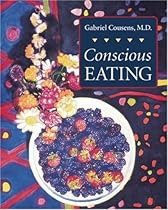 Take specific alkalinizing foods and herbs that have been proven clinically to alkalinize the body, which are: juice of fresh lemon at least two times per day, chaparral tea or herbal extract, apricots, and vitamin k foods. The outer leaf of cabbage is high in vitamin k. Wheat-grass juice is an excellent alkalinizer.
9. Use vegetarian digestive enzymes to improve poor digestion of complex carbohydrates. The most concentrated sources of these are high in amylase and extracted from vegetarian sources.
10. Take specific alkalinizing foods and herbs that have been proven clinically to alkalinize the body, which are: juice of fresh lemon at least two times per day, chaparral tea or herbal extract, apricots, and vitamin k foods. The outer leaf of cabbage is high in vitamin k. Wheat-grass juice is an excellent alkalinizer.
9. Use vegetarian digestive enzymes to improve poor digestion of complex carbohydrates. The most concentrated sources of these are high in amylase and extracted from vegetarian sources.
10. |












